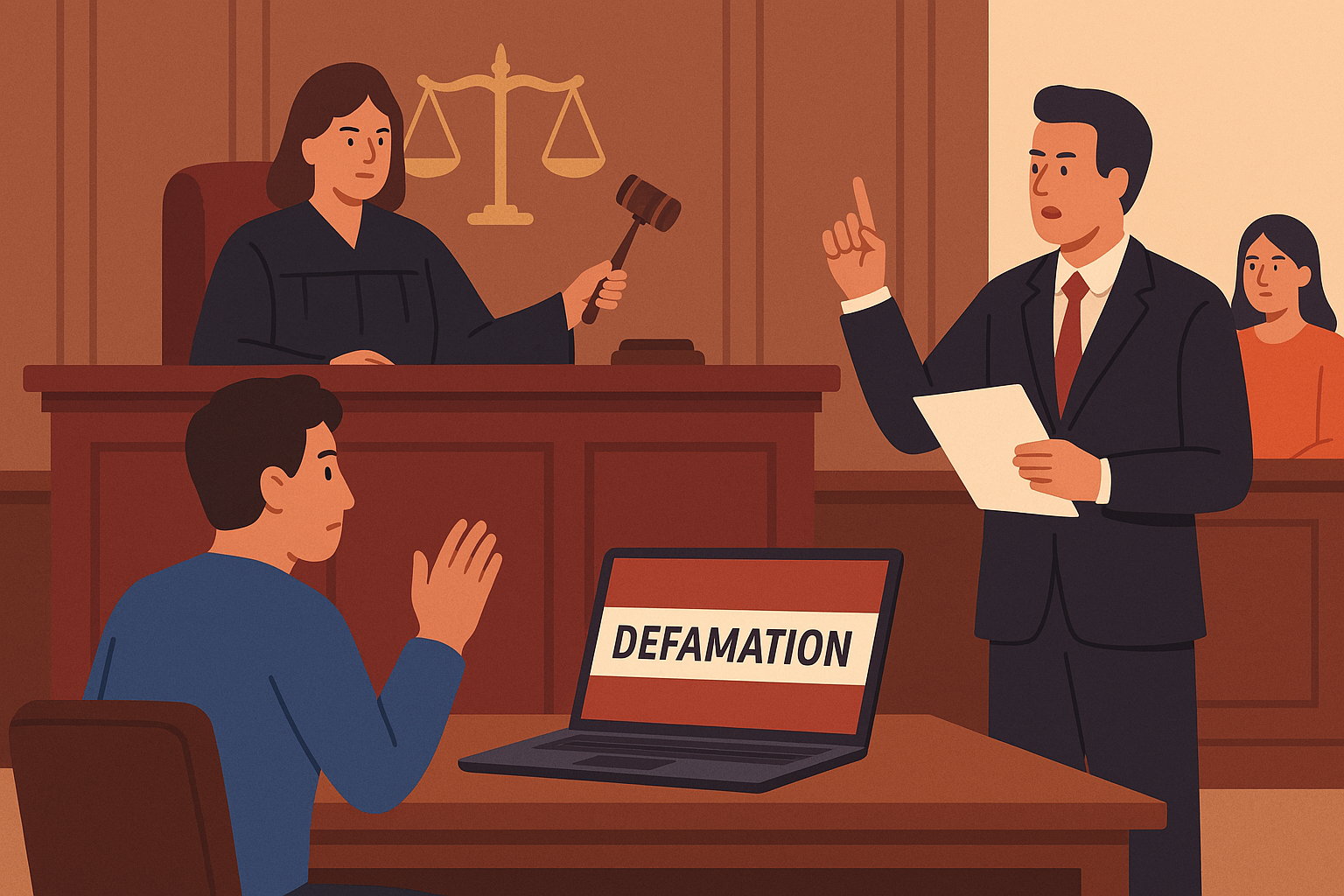Estimated reading time: 4 minutes
Table Of Content
Online Defamation in the Real World
Online defamation cases have been steadily rising with the growth of internet communication. Harmful posts, misleading reviews, and slanderous content can destroy personal and business reputations. From celebrities to small business owners, no one is immune to falsehoods that spread rapidly and leave lasting damage.
These real-life internet defamation examples illustrate what’s at stake—and what can be done.
Notable Online Defamation Cases and Their Outcomes
1. Courtney Love’s Twitter Libel Trial
In one of the first high-profile Twitter libel cases, singer Courtney Love was sued in 2014 for tweeting defamatory statements about her former attorney. The tweet accused the lawyer of being “bought off.”
- Outcome: Though initially facing potential liability, Love ultimately won the case when a jury determined she did not act with malice.
- Lesson: Public figures can still win defamation lawsuits if they lack malicious intent.
“Twitter libel is real. Think before you tweet.” — ABA Journal
2. Jones v. Dirty World Entertainment Recordings
Sarah Jones, a teacher and cheerleader, was defamed on a gossip website. The platform published user-submitted posts accusing her of promiscuity and criminal conduct.
- Outcome: The court ruled in Jones’s favor. She was awarded over $300,000 in damages. The site was not protected by Section 230 due to its active role in content development.
- Lesson: Websites that participate in shaping content may lose liability protections.
3. Business Review Fraud: Hassell v. Bird
A San Francisco attorney sued a former client for posting a false Yelp review. The post damaged her reputation and practice.
- Outcome: The plaintiff won, and a court ordered Yelp to remove the review. Yelp challenged the order, citing Section 230. The California Supreme Court upheld the takedown order.
- Lesson: While rare, court-ordered removals are possible—even when platforms resist.
4. Elonis v. United States
Though not a traditional defamation suit, this case involved threats posted online by Anthony Elonis against his ex-wife and others, framed as rap lyrics.
- Outcome: The U.S. Supreme Court overturned his conviction, ruling that intent must be considered when evaluating threatening posts.
- Lesson: Context and intent are critical in defamation and related internet speech cases.
5. Small Business Victories Against Fake Reviews
Several small businesses have won lawsuits over false negative reviews on platforms like Google and Yelp.
- Examples:
- A wedding venue in North Carolina successfully sued an individual for leaving a fake review after being denied a booking.
- A dentist in New York won damages from a non-patient who left libelous comments online.
“Reputation is currency in the digital economy. Losing it unjustly is a serious injury.” — Harvard Business Review
Defamation Defenders: Real Solutions for Real Problems
At Defamation Defenders, we assist individuals and organizations who face:
- False allegations
- Internet slander
- Malicious reviews
- Fake news and rumors
Our solutions include:
- Takedown services for defamatory content
- Search engine suppression strategies
- Legal coordination for court orders
📞 Schedule a Free Consultation and start taking back control of your reputation today.
Key Takeaways from Resolved Defamation Lawsuits
- Intent matters: Courts often assess whether the defamer acted maliciously.
- Documentation is crucial: Save everything from screenshots to timestamps.
- Section 230 is not absolute: Sites that modify or encourage posts may be liable.
- Legal orders can work: Especially when supported by strong evidence.
FAQ: Internet Defamation Cases
It’s possible, but highly discouraged. Legal representation dramatically improves your chances of success.
This depends on the damage done. Some awards exceed $1 million, while others focus on injunctions or small settlements.
False statements that harm your reputation and are presented as fact, not opinion.
Yes. If the review is false and causes measurable harm, it may be defamatory.
Typically between 6 months to 2 years, depending on the case complexity and jurisdiction.
Related Content:



